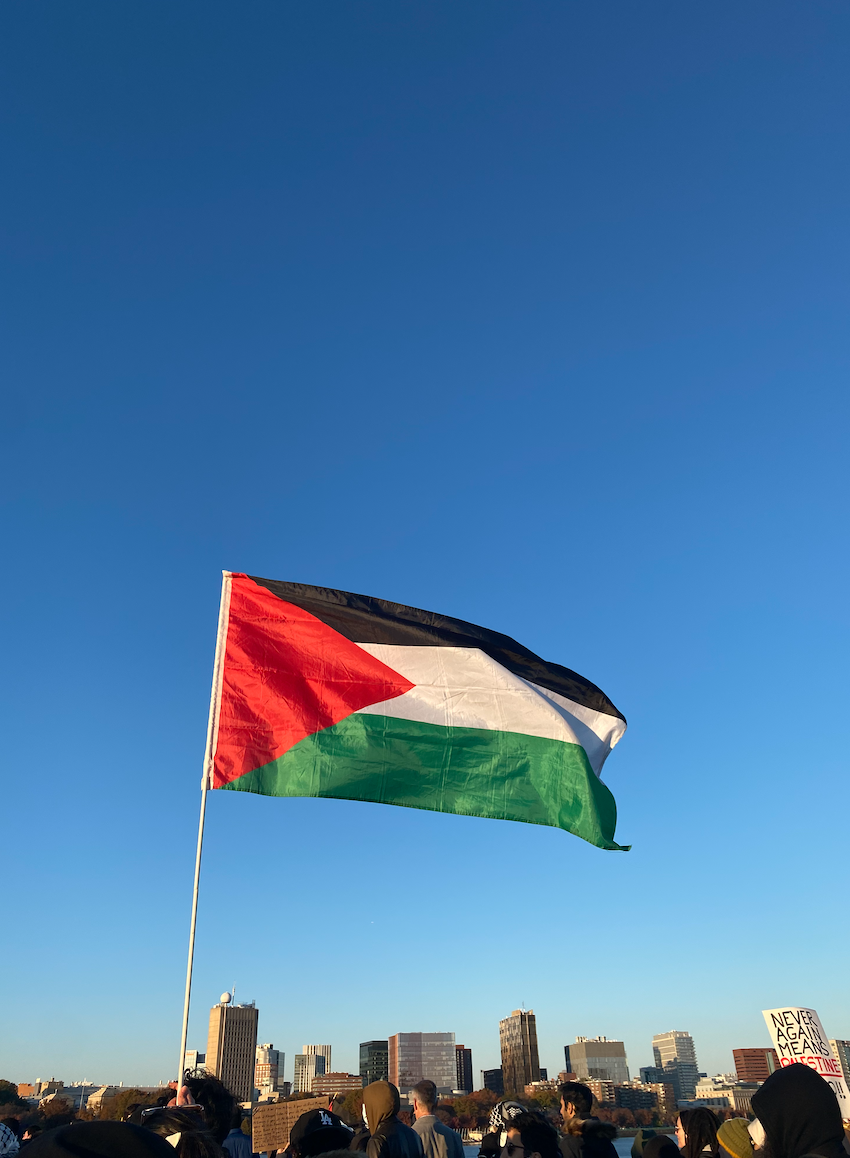On Nov. 14, George Washington University suspended its chapter of Students for Justice in Palestine (SJP) following the organization’s projection of pro-Palestine messages on a campus building. GW SJP had projected a variety of statements, including “GW is complicit in genocide in Gaza” and “Glory to our martyrs.” An email from the GW President referred to the projections as antisemitic and a violation of GW policy. The suspension of GW SJP is one example in an endless list of suppression of pro-Palestinian voices, especially on college campuses. It also demonstrates just how much of the current discussion of the genocide in Gaza has become a discussion of semantics. The post-9/11 hysteria over the public usage of Arabic and Islamic words and phrases has returned in full swing — not that it ever truly went away.
I was very young during the aftermath of 9/11, but I still know exactly how the average American, including my friends, perceived Islamic expressions like “Allah hu akhbar.” These days, the usage of phrases such as “glory to our martyrs,” “from the river to the sea”, and “intifada” during pro-Palestine protests is vilified by mainstream media, politicians and university presidents. Any flag, poster or chant in Arabic is immediately interpreted as pro-ISIS or pro-Hamas. It is incredibly frustrating to have even the simplest parts of your religious expression bastardized and associated with evil. Arabic is not my native language, but I know how exhausting it is for Arabs to contend with these extreme misinterpretations. It feels like we are being told that there is something inherently wrong, violent and shameful about who we are, and we should hide or reject it.
I know that I’m speaking from a different place than most people, especially non-Muslims and non-Arabs who did not grow up with these words as part of their everyday vernacular. When I think of the word “martyr” (شَهيد) I remember my friend’s little brother, who passed away after a long battle with a disease doctors could not diagnose. He is a martyr. The thousands of Palestinian children who were killed by Israeli airstrikes, who died of illness because there are fewer and fewer functioning hospitals in Gaza and who are starving to death due to Israel’s siege are all martyrs. I say “Allah hu akhbar” (ٱللَّٰهُ أَكْبَرُ) when I pray because I believe God is the greatest. Moreover, it’s because I think belief in God as the most powerful has always been a source of hope for oppressed people, from Iraq to Yemen, from Afghanistan to India and from Palestine to Sudan.
Racism, xenophobia and Islamophobia aside, I find it hard to believe that a country that is so diverse, and that speaks a language with so many borrowed words, is so afraid of the Arabic language. This fear is prevalent across the political spectrum. While conservatives engage in explicit anti-Arab rhetoric, liberals tone police Arabs and Muslims by discouraging the use of phrases that might be interpreted as hostile. Even at Wellesley, where students love to think of themselves as progressive and accepting of other cultures, the vilification of Arabic persists. In a Letter to the Editor published last month, a group of students labeled the phrase “glory to our martyrs” as antisemitic, claiming that it celebrates “terrorists who [died] with the mission of murdering all Jews.” I would invite these students to examine their Islamophobia and anti-Arab racism, and then maybe Google the phrase before maligning it. We won’t stop saying “glory to our martyrs,” “intifada” or “Allah hu akhbar” because there is no reason to stop. And we will not allow a farcical discussion of semantics to distract us from our goal: freedom for our brothers and sisters in Palestine.




